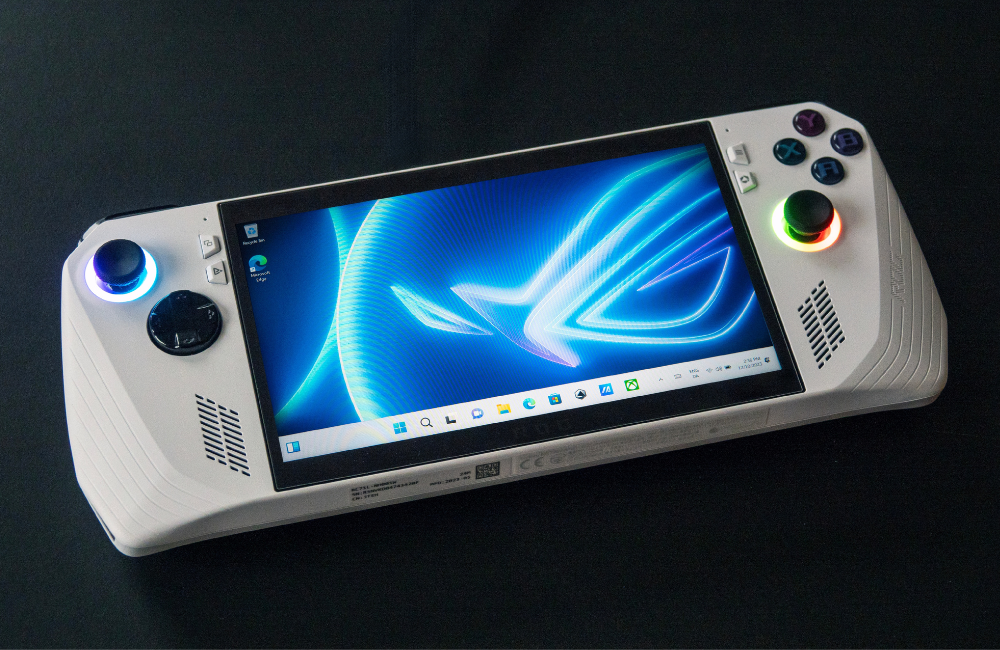The gaming industry witnessed another strategic shift this week as Microsoft announced it would temporarily halt development of its long-rumored Xbox handheld console. The Redmond-based technology company has instead chosen to channel its resources toward enhancing Windows 11’s gaming capabilities for existing third-party portable devices, marking a significant departure from previous handheld ambitions.
This decision arrives at a crucial juncture for the gaming market, where portable gaming has experienced unprecedented growth following the success of devices like the Steam Deck and Nintendo Switch. Microsoft’s pivot suggests the company believes optimizing existing platforms may yield better results than launching entirely new hardware.
Strategic realignment toward software excellence
According to industry sources and reporting from Windows Central, Microsoft has identified Windows 11 optimization as its primary focus for the portable gaming sector. The company is particularly interested in improving gaming performance for devices such as ASUS’ Project Kennan, a move that reflects broader industry trends toward software-first approaches.
This strategic realignment doesn’t represent an abandonment of handheld gaming entirely. Instead, Microsoft appears to be acknowledging that the pathway to portable gaming success may lie in perfecting the software experience across multiple hardware platforms rather than creating proprietary devices. The approach mirrors strategies employed by other tech giants who have found success in platform optimization rather than hardware proliferation.
The decision also reflects Microsoft’s growing confidence in Windows 11 as a gaming platform. Recent updates have introduced features specifically designed for handheld devices, including improved touch controls, better battery management, and enhanced compatibility with gaming peripherals. These improvements suggest Microsoft views Windows 11 as the foundation for its portable gaming future.
The gaming industry context
The concept of an Xbox handheld device has tantalized gaming enthusiasts for nearly two decades. Microsoft Gaming CEO Phil Spencer has acknowledged the existence of various prototypes throughout the company’s history, though none have successfully transitioned from development labs to retail shelves.
Spencer’s previous statements about potential Xbox handheld development suggested such a device remained several years away from market reality. His public demonstrations of gaming on devices like the Lenovo Legion Go indicated Microsoft’s serious consideration of the portable gaming market, even if the company hadn’t committed to specific hardware development timelines.
The lengthy speculation period reflects the complex challenges associated with handheld gaming development. Battery life, processing power, game compatibility, and market positioning all present significant hurdles for companies attempting to enter the portable gaming space. Microsoft’s decision to pause development suggests these challenges remain formidable even for a company with substantial resources and gaming expertise.
Gaming performance takes priority
Rather than pursuing proprietary hardware development, Microsoft has chosen to focus on what it does best: software optimization and platform development. The company’s emphasis on Windows 11 gaming improvements represents a more pragmatic approach to portable gaming market participation.
This strategy could potentially benefit gamers more than dedicated hardware development would. By improving Windows 11’s gaming capabilities across multiple devices, Microsoft can enhance the gaming experience for users regardless of their specific hardware choices. The approach also allows for faster implementation of improvements without the lengthy development cycles associated with new hardware launches.
Current Windows 11 gaming enhancements include improved DirectX integration, better frame rate consistency, and enhanced compatibility with popular gaming peripherals. These improvements directly address common complaints about PC gaming on portable devices, suggesting Microsoft’s software-focused approach may yield more immediate benefits for users.
Microsoft console future remains unchanged
Despite the handheld development pause, Microsoft’s plans for next-generation Xbox console development appear unaffected. Xbox president Sarah Bond has previously indicated that the upcoming home console will represent the largest technical leap in Xbox history, though specific details about features, capabilities, and release timelines remain closely guarded company secrets.
The separation of handheld and console development strategies suggests Microsoft views these as distinct market segments requiring different approaches. While the company explores software optimization for portable gaming, its console development continues along previously established timelines and specifications.
Industry speculation continues regarding potential integration between future Xbox consoles and handheld gaming capabilities, similar to Nintendo’s successful Switch model. However, recent reports suggest Microsoft’s current focus remains on perfecting individual platform experiences rather than pursuing hybrid approaches.
Implications for gaming enthusiasts
For gaming enthusiasts eagerly anticipating new portable gaming options, Microsoft’s strategic shift presents both opportunities and disappointments. While dedicated Xbox handheld hardware won’t arrive in the immediate future, improvements to existing portable gaming experiences through Windows 11 optimization could provide more immediate benefits.
The decision also reflects broader industry trends toward platform agnosticism and software-first approaches. Rather than forcing users to adopt specific hardware, Microsoft’s strategy allows gamers to choose their preferred devices while still accessing optimized Xbox gaming experiences.
This approach may ultimately prove more beneficial for consumers, offering improved gaming experiences across multiple device types rather than limiting enhanced functionality to proprietary hardware. The strategy also positions Microsoft to respond more quickly to changing market conditions and user preferences.
Gaming industry evolution continues
Microsoft’s handheld development pause represents another chapter in the rapidly evolving gaming industry landscape. As companies navigate changing consumer preferences, technological limitations, and competitive pressures, strategic flexibility has become increasingly important for long-term success.
The decision demonstrates Microsoft’s willingness to adapt its strategies based on market realities rather than pursuing predetermined development paths regardless of circumstances. This pragmatic approach may serve the company better in an industry where consumer preferences and technological capabilities change rapidly.
As the gaming industry continues its evolution toward more diverse and accessible gaming experiences, Microsoft’s software-focused strategy for portable gaming may prove prescient. By optimizing existing platforms rather than creating new hardware, the company positions itself to benefit from the growing portable gaming market while minimizing development risks and resource commitments.
















